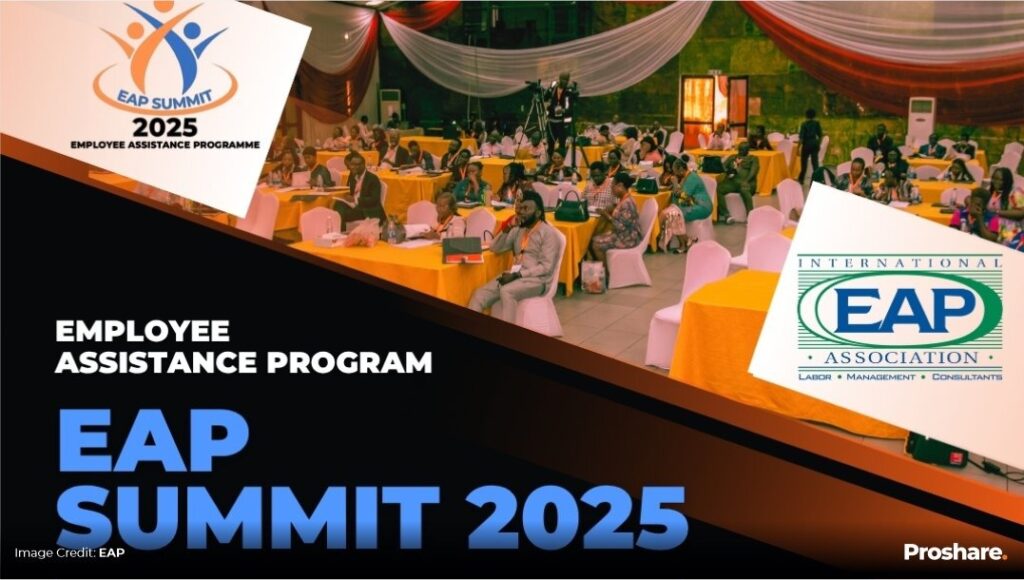Towards Wellbeing of Nigerian Workers – the Employee Assistance Program
By Femi Olugbile
Nothing reflects the realities in any nation more accurately than the wellbeing of its average worker.
Nigeria has a very lively trade union culture, and it would ordinarily be assumed that the welfare of workers would be kept at a premium as they breathe down the necks of their employers. However, their interactions with employers in the current scheme of things seem to be predominantly focussed on basic existential issues such as compliance with minimum wage and their efforts to minimise the tendency of employers to use large numbers of ‘casual’ workers who have minimum entitlements and may be hired or fired at will.
While International companies such as the Oil majors are required to conform to certain rules in ensuring what are deemed acceptable standards of safety and well-being for their employees, local companies vary widely in their work-place culture, and the structures they lay down for workers’ welfare.
Salaries and general working conditions are, of course important, but have been understood from several decades of Work Research not to be all in all to the worker. As demonstrated by the classical work of Professor Olatunde Oloko at Ewekoro Cement Factory, they may not even be the most important ‘hygiene’ factors in the workers’ consideration.
A worker spends an estimated 90,000 hours of his lifetime at work. Giving him a reasonable salary may not totally address his needs or guarantee that he will be a good, happy and efficient worker, contributing maximally to the productivity of the organisation.
The good employer may see logic in intentionally pursuing the sustenance of Wellness in his worker, on the premise that when a worker is ‘Well’ – in all dimensions of ‘Wellness’, he can produce to the limit of his capacity. From that perspective, an organisation expending resources to achieve Wellness in its employees is not doing ‘philanthropy’. There is a quantifiable return on investment in the form of increased productivity.
In Nigeria, some international corporate organisations, especially those in Oil and Telecommunications, routinely provide such a facility in the form of an Employee Assistance Program (EAP) for staff.
EAP is support that is geared towards ensuring workers’ wellbeing in all dimensions, including their physical health, their family and other social relationships, their financial stability and even their spiritual harmony, all of which add up to determine their psychological health. The professional assistance is offered through a mechanism that provides confidential, easy-to-access counselling in-house, outsourced or hybrid, to every employee. Workers may walk in or phone in to get confidential service, although there is also the possibility of being referred from the office.
The concept of an Employee Assistance program originated in the USA in the 1930s out of a perceived need to deal with the consequences of workplace alcoholism that was widely prevalent then, inflicting deleterious consequences on industrial productivity. The focus gradually shifted beyond alcohol to all the areas of life in which the worker could benefit from confidential counselling, and the practice of employing EAP services expanded until it became a standard requirement. The practice also spread to Europe and other parts of the world. In the UK, although EAP is not mandatory, most employers of labour provide it as a means of support to deal with the worker’s personal and work-related issues. The benefit is often extended to immediate family members. The range of services covered include Counselling, Legal Advice and Financial Guidance.
On the African continent, EAP first took root in South Africa in the 1980s.
. From an initial conventional focus on short term Counselling for issues such as Substance Abuse and conflict resolution, for the purpose of reducing absenteeism and ‘presenteeism’, it has been customised over the years to address broader issues affecting South African workers, such as economic challenges, the impact of political changes and diversity, and the socio-psychological effects of HIV/AIDs which is rampant among workers. EAP service has now come to be accepted as a right which is demanded for by workers in the country.
EAP was introduced into Nigeria in 2012 through the kind facilitation of the Oil company CHEVRON. Since that time there has been a concerted effort to grow the profession and sensitise employers, workers and the society at large about the value proposition in pursuing holistic health for the worker, centred on his mental health, as a tool for maximising productivity. The COVD19 experience boosted awareness of psychological issues among the general population and has increased the ‘demand side’ of Workplace psychological services, with a greater tendency for referrals to be made for more specialised treatment where required.
The Employee Assistance Professionals Association of Nigeria (EAPAN) is currently making efforts to crank up its activities, visibility and impact in the private and public sectors, to expand the presence of EAP in the Nigerian workplace. A Transformation Team recently held trainings to standardise registration and practice procedures. There are plans for advocacy meetings with Ministry of Labour and the Labour Unions. There is ongoing engagement with stakeholders in Human Resources, such as CIPM, and employer-groups such as NECA. Work is being done to customise EAP to the specific needs and peculiarities of the Nigerian environment, and to spread the message across the nation.
As part of this drive, the latest iteration of an annual EAP Summit, organised by Sages and Scribes, an organisation led by veteran Trainer and Consultant, Venerable Adelowo Adesina, is holding from 13th to 14th August at NECA House, Ikeja. The theme is ‘Employee Wellness: The Imperatives of Social and Health Insurance’.
It is to be hoped that the benefits of EAP would be extended to the ordinary Nigerian worker, public or private, high or low, and not confined to employees of Oil Majors, and Blue-chip Service companies and TELCOs. Afterall, the Nigerian worker is as deserving of wellbeing in or out of the workplace as a worker anywhere else in the world.

